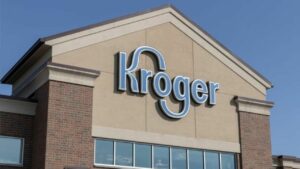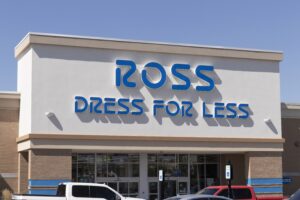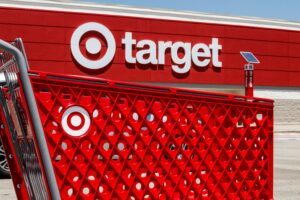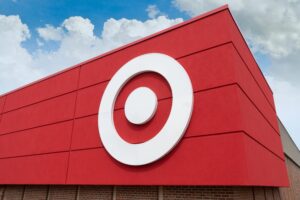November 14, 2006
Nordstrom Sings a New Tune
Music at Nordstrom will no longer be confined to a pianist playing in the store. No, the department store chain is looking to broaden its musical horizons and add to its coffers when it begins selling CDs from musical greats and new artists, some on an exclusive basis, in company stores and online.
The department store chain plans to rollout its musical offering initially to stores on the West Coast this month and to all its locations next year. Music titles will be available for sale online. The chain plans to offer around 20 titles, initially, with that number going up to around 50 next year.
Nordstrom moves into the music business following the success of another Seattle icon, Starbucks. The coffee chain, which views itself as a lifestyle company and not just an operator of coffee shops, has enjoyed tremendous success with exclusives from musical legends such as Ray Charles and Bob Dylan.
“We want to sell products our customers are interested in,” said Pete Nordstrom, president of merchandising, in a company press release. “Music and fashion are similarly aligned — we’re encouraged by the response we’ve received from the music industry to collaborate on some compelling music. This is a new category for us and we’re excited to give it a try.”
Michael E. Barber, founder and president of Barber Entertainment Corp., will work with Nordstrom to produce, market and distribute both exclusive and non-exclusive music in cooperation with record labels and artists.
“The music landscape is quickly changing as people are buying their music in many different places,” said Mr. Barber. “The overwhelming majority of music is still purchased from retail stores, and Nordstrom has an incredible opportunity to make great music available in one of everyone’s favorite places to shop.”
Nordstrom is looking for early sales success with two compilations of holiday songs. The first: “A Nordstrom Classic Holiday” includes popular recordings such as “Christmas Song” by Nat King Cole and “Winter Wonderland” by Bing Crosby. The second: “A Nordstrom Modern Holiday” is a compilation of contemporary holiday tunes from artists including John Lennon and Liz Phair.
Discussion Question: What are your thoughts on Nordstrom’s venture into music retailing?
A New York Times article said that after visiting Starbucks and Pottery Barn, which also sell music titles, Peter Nordstrom came back and wanted
to know why Nordstrom was not doing the same thing.
Mr. Nordstrom is looking to make money selling CDs – otherwise, he said, he wouldn’t pursue the venture.
“The traditional way people bought music in the past is clearly changing. We want to take advantage of the fact that we have a lot of customers coming through
our doors that the music industry is interested in,” he said.
Discussion Questions
Poll
BrainTrust
Recent Discussions







While I don’t have any strong feelings about this either way, it does prompt me to ask a question I often wonder about:
When – if ever – will Nordstrom move into housewares?
In 1986, 53 million music CDs were sold in America. In 1990, 288 million CDs were sold in America. Today, music CDs are on the decline. Nordstrom should examine why it took 16 to 20 years to initiate an innovation. It would be a stronger company if it actively looked for appropriate innovations, with a methodical means of encouragement and self-examination. Otherwise, it might appear that innovation is only welcome from the top, and then only rarely, when it’s getting stale anyway.
Nordstrom has built a very recognizable consumer point-of-difference with its piano music in-store. This is building brand equity and a consumer familiarity that creates a marketing benefit and selling environment for music sales throughout each Nordstrom store.
The foundation has been strategically established and planted in the shoppers’ minds. This new category of product, in such a marketing savvy retailer, will reap great rewards, including repeat shopping trips and profits.
The tactical points commented on are of little concern to shoppers. Whether they see it in the catalog, on display, or in portable merchandising stations throughout the Nordstrom stores, is the icing on the cake. Hmmmmmmmmmmmmmmm
My preference for any successful retail venture is that they remain focused on the core business. Fringe ventures — whether they make money or not — have the tendency to be distractions to the really important things within a store. Nordstrom has been extremely successful for a relatively long string of financial quarters. It is not unknown for management under those circumstances to start looking for new areas of excitement.
On one hand, CD purchasing demographics align extremely well with Nordstrom. Industry sources tell me that the future of CD sales, as opposed to music sales, is in niche categories and older demographics. Nordstrom appears to be well positioned for that market. In addition, high volume CD retailers are not attractive places to shop for the affluent customer served at Nordstrom. Given these points, expanding into the category makes sense.
On the other hand, CDs will drive very few incremental footsteps into Nordstrom. It’s the classic “we have the footsteps, what else can we sell them” approach. Which seldom works in the long run. In and of itself, it is unlikely this move is really all that big a deal for Nordstrom. As an indicator of future management behavior, there may be cause for concern.
Nordstrom is getting close to big win here. Music is a great way to position a store’s brand and to cater to the interest of the shopper. How many times have I cut my shopping short because of horrible, tasteless music over inferior speakers? Appropriate music reinforces a shopper’s resolve to deal with the shopping experience.
I have stood in line for 15 minutes at Starbucks listening to Ray Charles. At Panera Bread, I lingered over the specials while enjoying Dexter Gordon or Miles Davis. In each case, music is a major factor in my loyalty to the brand.
However, coordination and sophistication is paramount if Nordstrom really wants to hit one out of the park. First, let the patrons know what is playing with a simple play list. Second, study the demographics and lifestyle of your shoppers by location, time of day, area within the store, and day of week. Your CRM system has this data, hopefully. If the demographic suggests baby boomers on Tuesday afternoon, play 70s rock. If your analysis reveals generation Y, after school on Friday, go with Brittany Spears or Beyonce. One size doesn’t fit all.
If you really want to wow your shoppers, let your preferred customers select their tunes on a kiosk. That way, they’ll tell you when they’ve arrived, stay longer, and likely buy more. Isn’t that what you want?
“Music everywhere” is a strong and lasting lifestyle and cultural trend. How do retailers tie into this trend to enhance customer experience and satisfaction, and their own sales and profits?
Today’s leading retailers, from mass merchants and department stores to specialty and lifestyle boutiques, are savvy users of music and musical artists to enhance brands, marketing, sales and profits. Retailers such as J.C. Penney, Gap, Armani Exchange, Nordstrom, Sears, Target and Wal-Mart are signing musical artists for multi-platform campaigns that include advertising, in-store and online music sales, personal appearances and performances, and the creation of in-store musical environments that enhance the shopping experience (and boost sales of all products).
Wal-Mart launched a national original music performance series, Soundcheck, earlier this year. Participating Soundcheck artists record in-studio exclusive performances and interviews, which are played nationwide in Wal-Mart stores on TV and HDTV screens as well as on the retailer’s web site. The artists’ respective albums receive extra attention in Wal-Mart stores and online, where downloads of tracks sell for 88 cents each. The comparable Nordstrom program is called Silverscreen.
These are examples of how savvy retailers identify and then exploit TRENDS in the economy, society and culture to prosper and build long-term profitability. Turning trends to your advantage is a basic skill set for business.
I think Don Delzell is all over this one. The CD is well on its way to becoming the LP of our day and digital music delivery rules. On the other hand, these aging technologies adapt a poignant following who identifies them with a better (younger) time or with some sort of “classic” attribute.
But, I doubt Nordstrom picked up CDs as a play on the delivery system. Rather, this is largely an “affinity play,” much the same as an affinity card. The people who shop at Nordstrom are so fiercely loyal that they identify with all things Nordstrom. Just read how Bill Robinson describes his Starbucks and Panera experiences. The music is “Starbuck’s music”…
Combine these two trends, “Nordstrom music” and “CD” (Classic Delivery system) and they may have a winner.
The reason not to get in this business came straight from Peter Nordstrom when he wondered why his company wasn’t doing something everyone else was. Peter, that’s as good as reason as any not to do this. Of course, now that Nordstrom is in the CD selling business, they’ll probably be successful. That’s retailing.
This idea makes sense I suppose…I am in the store, I hear the music, I buy the CD on impulse, I listen to it, it sits in the car for awhile, I wonder why I have another of those compilation CDs, I realize that I’ve been played by a retailer, I put Nordstrom in a bottom feeder category, maybe. Now if Nordstrom were to take the proceeds of the record sale to help the local high school music program, or…you get my drift, in exchange for quotes relating to why the shopper loves the music or what memories the music evokes and these quotes become part of an effort to be real or have meaning, and use those insights to understand their customers, that might work. I am not a Nordstrom shopper. They sell mainstream conformist fashion – perhaps they should sell DVDs of American Beauty.
The idea of the piano player in the Nordstrom store is golden and sophisticated. It fits the overall expectation. They may do well also with some stylish jazz in other areas, in the background — and non obtrusive — otherwise they need to be careful. SFA just finished a flawed attempt to woo younger people who didn’t shop there and they drove off a good portion of their other established customers. This music should be for a select and sophisticated group. Nordstrom must remember WHO its majority customers are.
I am NOT thrilled or excited at the thought of Brittany shrilling throughout the store AT ANY TIME. That is NOT why I go to Nordstrom and I venture to guess that others may feel the same. They, however, may have a chance at some return with the right mix, positioned in the right place, to take advantage of the possible sale. From an analytical perspective as well as from a shopping perspective, this must be done carefully and tastefully.
CDs are in decline. Tower Records, for God’s sake, is going OUT of Business! This alone may afford them the opportunity to cash in on those older customers who want a CD and who do NOT MP3 or “iPod” and convenience may also be a factor. I agree, however, that this is late in the game.
This may be a great accessory, but they must remember who they are and what they do.